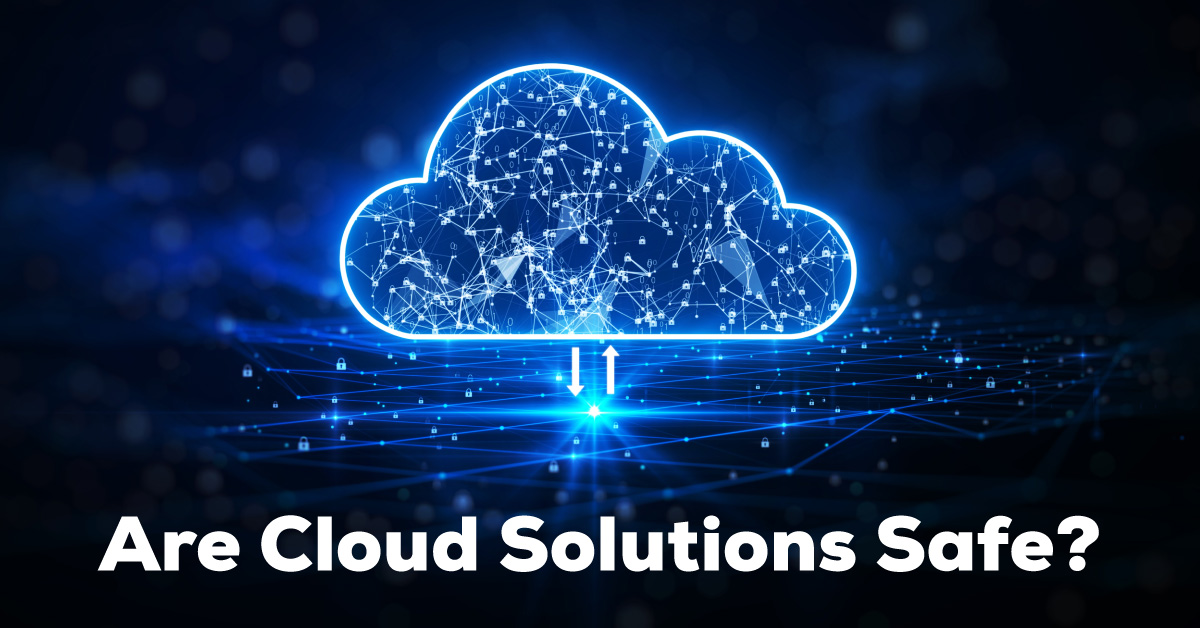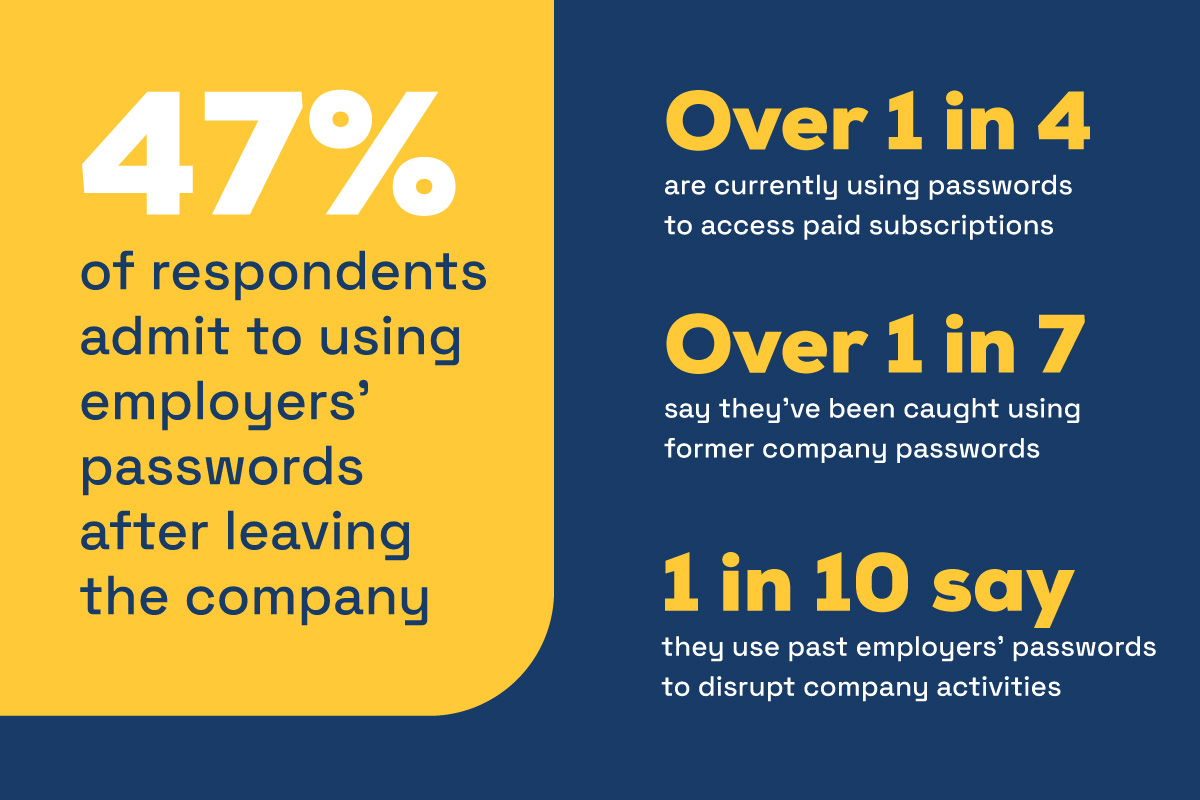When your data lives in the cloud, it’s accessible from anywhere. That’s great for remote work, collaboration in real-time, and getting business done when you’re on the go. But it’s also great for cybercriminals. Most companies that offer cloud solutions have invested in robust cybersecurity to keep your data safe. But it’s important to keep in mind that your data security is only as strong as the weakest part of your defenses.
It’s also important to keep in mind that internal IT infrastructure isn’t 100% secure either.
3 Security Concerns Related to the Cloud and Cloud Computing
The most powerful home security system in the world doesn’t work if it’s not armed. Cloud security is somewhat similar in that a little due diligence and training can go a long way. And just like properly securing a physical space, it’s helpful to understand where the problems really are.
1. Your Attack Surface Is Huge
Every device, every user, every tool, and every vendor that has access to any of your cloud solutions can pose a threat to your sensitive data. You’ll need to keep close tabs on who is using your tools, how they’re using them, and how their devices are secured.
Strong passwords, device security, multi-factor authentication, and applying patches and updates promptly are all highly effective — but only when these best practices are followed consistently. And that, unfortunately, brings us to our next point…
2. Misconfigurations Are Too Easy
Every tool, every platform, and every provider will have different configurations, and learning how to properly configure each one can be a burden on IT teams.
Here are the most common misconfigurations we find:
- Overly permissive settings, like allowing access to outside ports or allowing private and public resources to interact
- Mistaking authenticated users for authorized users
- Not limiting inbound and outbound ports
- Failing to control what can be accessed through default credentials
- Continuing to use development settings in real-world environments
- Ignoring the best practices indicated for any third-party resources
3. Human Error Is a Big, Big Problem
It’s easy to get frustrated at cybercriminals, and we do too. But employees tend to do a large part of their work for them, and that’s just as frustrating.
Here are a few recent statistics:
- 82% of data breaches involved a human element
- At least 99% of cloud security failures involve human negligence or error, which means that…
- 99% of cloud security failures are entirely preventable
Cloud solutions are often very user-friendly, which might mean employees are using their tools in ways you might not have foreseen. Put controls in place as needed to restrict any use that could increase your risk of an attack. Although every now and then, a disgruntled employee wants to lash out at their employer, we find that most employees want to do their part to help keep your data safe.
How These Cloud Security Challenges Can Be Used Against You

In failing to secure cloud data properly, companies are making it way too easy for cybercriminals around the world to take what they like.
Here are the 4 most common ways hackers are taking trillions of dollars out of the economy every year:
1. Data Breaches
Your sensitive data represents a significant payout for hackers. Not only can this data fetch a big price on the dark web, but hackers are also threatening to tell the media exactly what they’ve done in order to ruin a company’s reputation and potentially set it up for an expensive lawsuit.
One in three data breaches is the result of unpatched software, but most organizations struggle to keep up with them — including those related to their cybersecurity. And even more unfortunate, this is common knowledge among hackers.
2. Vengeful Past and Present Employees
Insider threats are nothing new, but a recent survey from PasswordManager.com turned up a few patterns business owners and IT professionals need to understand.

Make sure you eliminate access to your systems, tools, and data immediately when an employee leaves the company, watch for any suspicious activity, and make sure your employees aren’t sharing passwords or using passwords that are easy to guess.
3. Zero-Day Exploits and Other Cyberattacks
Poor patch management opens the door to all sorts of other cyberattacks, including zero-day exploits. Every time a vulnerability is discovered in a tool or system, that’s a golden opportunity for hackers until it’s patched and those patches have been applied.
However, an unsecured cloud-based solution can also be hacked through phishing scams or malware, allowing cybercriminals to launch denial-of-service attacks and more.
4. Related Lawsuits

We touched on this earlier, but it’s worth mentioning in more detail. Many blogs of this nature tend to focus on business disruptions and reputation, but more agencies and state governments in the U.S. are recognizing the importance of protecting sensitive data.
Just this past August, a former student and employee filed a class action lawsuit against the University of Minnesota after a hacker claimed to steal 7 million Social Security numbers from the school. Healthcare organizations, law firms, and financial institutions are now “frequent fliers” for these types of suits, and it’s not uncommon for plaintiffs to seek millions of dollars in civil damages.
Still, we often get pushback from companies who don’t want to invest in reasonable prevention due to cost and productivity concerns. We get it, and scaring people isn’t our favorite thing to do either. But when the consequences of inaction cost more time and money than most businesses could afford, we feel the need to keep on message.
Should Your Company Worry?
Worry enough to make sure that you’re following best practices, many of which we’ve outlined above. Cloud computing concerns are just as valid as the security concerns regarding your internal IT infrastructure. However, there are benefits to migrating to the cloud that should put your mind at ease.
While your business might not have the luxury of affording enterprise-level security and monitoring, a cloud service provider does. Any quality cloud computing service provider will have highly sophisticated security systems in place to protect your data. You just need to use them properly. Additionally, reputable cloud service providers should have IT staff on hand whose job is to monitor network and data security.
It’s still your responsibility to make sure you’re using cloud computing solutions in a safe way, and that can be a challenge for some organizations. If you currently don’t have the time or the resources to keep on top of cloud security, we can help!
Click below to learn more about the cloud services we provide to protect businesses against spam, malware, and viruses while safeguarding their communications and valuable data.
